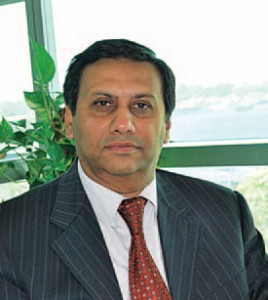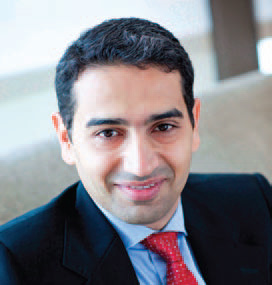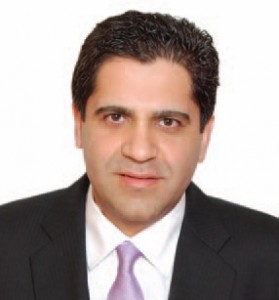 Governments across the Middle East are embracing change. The social justice agenda, which has been rolled out across most of the region, has seen them place a stronger focus on spending on employment, healthcare and education reform – as well as investing in infrastructure and the private sector to encourage growth. LIZ SALECKA reports
Governments across the Middle East are embracing change. The social justice agenda, which has been rolled out across most of the region, has seen them place a stronger focus on spending on employment, healthcare and education reform – as well as investing in infrastructure and the private sector to encourage growth. LIZ SALECKA reports
Many governments are now seeking to secure greater funding from both banks and other external sources for a range of public sector projects, particularly in infrastructure, while also ensuring that they manage their own internal liquidity more effectively.
Moreover, whereas in the past many local government ministries worked with autonomy, and had paper-based relationships with their banking partners, today there is a big movement towards both centralisation and e-banking.
“Government expectations were changing prior to the unrest but, since then, the social agenda has taken on much more importance in terms of the timeliness of its execution,” explains Steve Donovan, managing director, regional executive and head of global transaction services – Middle East, Pakistan and Turkey, Citi. “This has led to objectives to centralise the activities of various government ministries, the increased adoption of shared service centres and the move to a more automated environment.”
He points out that the products being offered to citizens are becoming more sophisticated – and less cash and paper-based – as governments seek to maximise both efficiency and their own returns. Many government agencies are also running Enterprise Resource Planning (ERP) systems to track payments and receivables.
“Governments are also exploring new innovative methods of financing such as Export Agency Financing and vendor financing to ensure that the infrastructure build out continues,” adds Donovan.

Greater automation
At Emirates NBD, which services government, corporate and SME sectors, Samir Sahu, DGM – transaction banking, also recognises a greater movement towards automation, which is happening in three key areas:
- account reconciliation – governments are looking for special functions such as appropriate referencing for payments and collections as well as facilities to upload information to their ERP systems. In this way, they are looking to achieve seamless reconciliation using proprietary and industry standard formats
- handling of government payments – there is growing demand for straight-through processing (STP) and increased efficiency. New modes of electronic payments such as “automated funds transfer” are replacing cheques
- handling of collections – governments want to streamline collections from various entities and they are looking towards banks to assist them with automated solutions such as direct debits and payment gateways in addition to cash and cheque collection services.
“While, initially, automation requests were concentrated in Dubai, we are now witnessing that federal bodies are increasingly looking for transaction banking services – and they are also very interested in benefiting from automation,” adds Sahu.

Maximising cash management
Many Middle Eastern governments are also seeking increased automation in the liquidity management space so that they can track down spare cash and maximise its use.
“Governments are trying to automate as much as possible to gain improved visibility into their cash flows and available liquidity, pull funds together and maximise returns on investment,” says Donovan.
“Visability into, and use of liquidity/surplus funds, is being thought about more and more,” concurs Haytham Al Maayergi, head of transaction
banking, Standard Chartered UAE, pointing out that better management of receivables is another focus area. “Government agencies are consciously managing their banking requirements like large corporates when it comes to their working capital requirements. This includes obtaining receivables financing rather than awaiting funding from the relevant ministry.”
He, nevertheless, notes that while governments are becoming more sophisticated in their needs, there is some resistance to moving towards total efficiencies as these come at a cost.

Partnership dilemma
Governments’ growing needs in terms of automated payments, collections and reconciliation services – as well as their increased focus on liquidity management – have led to questions over which banks are best placed to meet their requirements.
Citi believes that local banks have a prevalent role to play in offering services to governments – but that global banks have the networks and technology required to help them. “We are working in collaboration with local banks to jointly deliver solutions to governments by providing them with the technical infrastructure required, intellectual capital and also white-labelling our products,” says Donovan. “We are not a principle competitor to local banks but partner with them to offer services to governments. As government requirements become more international, this falls more into our space.”
And, similarly, Sanjay Sethi, managing director, cash management and public sector head, global transaction services – Middle East and Pakistan, Citi, points out that governments typically need multiple bank partners to help them move towards e-government. If they are simply looking for a financial portal, then their local banking partner should be able to offer it, but, for a niche solution, a global bank is more likely to step in.
“When it comes to liquidity management and visibility in a multi-bank environment, where governments hold various pockets of cash, a foreign bank can provide solutions that aggregate their funds together or, at the minimum, provide full visibility across accounts with multiple banks,” he says.

“However, a local banking partner is usually better placed when it comes to collecting monies in on behalf of governments as they have the branch networks required to handle receivables more efficiently. They have an important role in the consumer- to-government flows space and ensure revenue collections take place smoothly.”
He adds that when offering local and/or overseas payment services via different channels, global banks can offer integration with ERP systems that enable payments to be made in a more efficient, controlled and management information system-driven manner so that governments can benefit from structured reporting and technological efficiency.
Relationship management
Moving forward, there is a strong recognition among both global and local banks of today’s need to build strong relationships with government bodies.
“Working with governments over the long-term always helps an organisation,” says Al Maayergi, pointing out that Standard Chartered has a clear focus on Asia, Africa and the Middle East. “This focus places us in a competitive position to offer comprehensive solutions, access to specific capabilities and enhanced product solutions, while leveraging our strong footprint in those markets.”
Local banks also recognise the importance of their government relationships – but are equally aware of the need to offer products and services that are on a par with the transaction banking capabilities of global banks.
“As a government-owned bank, we have strong relationships and have frequent interactions with government organisations. It is true that having a long-standing, strong relationship with government clients can give a bank some added mileage,” says Sahu, pointing out that the products and service capabilities made available by banks such as Emirates NBD have started playing an increased role in Middle Eastern governments’ decision-making.
And he adds, “As a local bank operating in the region, we need to compete effectively with the large, global banks for transaction banking business. We have to be up-to-date in the solutions that we offer – with short implementation cycles – and cannot take things for granted.”
He explains that Emirates NBD has invested significantly in the development of solutions for government organisations – and continues to do so.
“We have a good understanding of their requirements and have capabilities for payments, collections and account reconciliation services,” he says. “We offer highly automated solutions and our straight-through-processing processes are not just internal to us as a bank, but also extend to our customers. When it comes to meeting demands for automation, we are well placed.”
Dubai’s infrastructure financing brainwave
Middle Eastern governments’ goals to increase investment in public sector projects have seen them arrange more sophisticated financing facilities with their banks, and seek additional support from external bodies such as Export Credit Agencies (ECAs).
This is emphasised in Dubai, where innovative financing has been arranged for a range of transport and infrastructure schemes, including the Al Sufouh Tram project.
Last year, the latter was one of the projects to benefit from a novel financing structure, devised by the government and the UAE’s banking sector, which involved the monetisation of cash flows from road toll receipts. Earlier this year, the Department of Finance in Dubai arranged a further US$675m dual-currency facility that will go towards the completion of phase one construction.
The latest transaction comprises a 13-year $401m loan, which will amortise over 10 years starting in 2015, and is guaranteed by the official government export credit agencies of Belgium and France. It also comprises a six-year $274m Islamic Ijara facility, split equally between US dollars and AED, which will amortise over three years, starting in 2015.
“We have seen a very encouraging response to this financing, which is a testament to the strong confidence that the international banks have in Dubai’s economy,” says H E Abdulrahman Al-Saleh, director general of the Dubai Department of Finance.
He points out that the Dubai government is always examining ways of optimising its funding strategy – and that the export credit agencies (ECA) financing attracted so far is a proof of this strategy’s success. “Through ECA, we have been able to achieve long-term financing at competitive rates while continuing to efficiently manage the emirate’s finances.”
Citibank, Deutsche Bank and HSBC acted as mandated lead arrangers and underwriters for the recent financing.
Social justice agenda drives automation
The social justice agenda has seen central governments across the Middle East adopt strategies that recognise that the policies they create should have a broad benefit to the average citizen, while also attracting capital – both human and FDI – to their countries, according to Sanjay Sethi of Citi.
“These policies impact a variety of segments, including e-governance objectives, pension reform, improving education and healthcare, and funding foundations that take care of future generations,” says Sethi, pointing out that local governments, which are tasked with implementing and executing these broader strategies, are now more focused on providing more efficient services to their citizens.
He explains that local governments are now offering their citizens a range of e-government services in areas such as payments for annual licences, public utilities, services and fines, which enable them to make their payments through a portal instead of having to queue up at a government office. In other cases, the whole process of making pension payments and social benefits has also been automated.
“Also, in education, where governments sponsor payments to students and scholars locally or overseas, monies can now be paid directly into their accounts or onto pre-paid cards in a seamless manner so they do not have to wait so long for their cheques,” adds Sethi.
 Cash And Trade Magazine For Cash and Trade professionals in the Middle East
Cash And Trade Magazine For Cash and Trade professionals in the Middle East





One comment